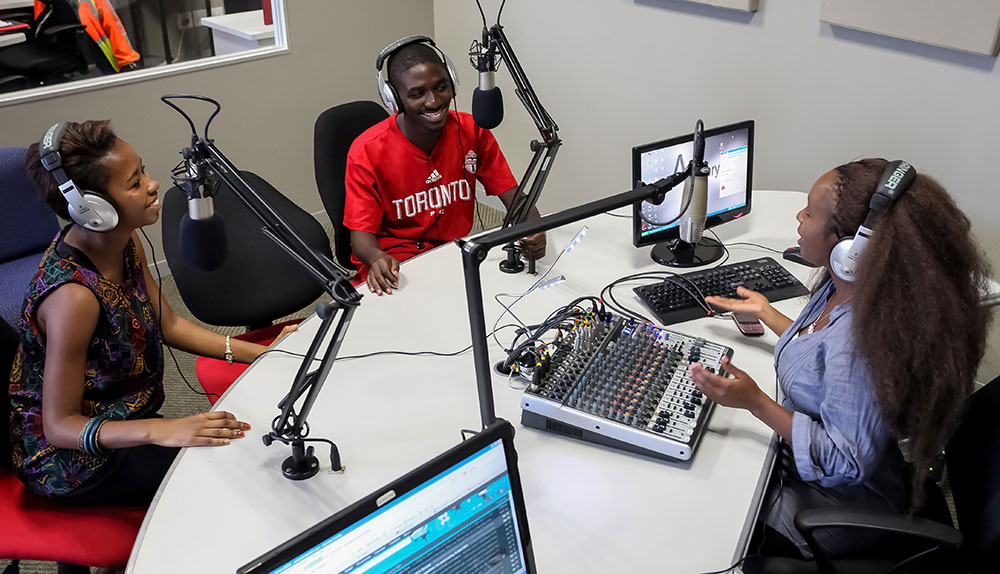People that make a difference
Amplifying alternative voices

“Before joining the station, I had no idea how radio works.”
“We wanted to help reporters think outside the box and seek alternatives to the voices they had always used.”
Hola Kasserine’s diverse content has attracted listeners of all ages and backgrounds. Far from being put off by discussions on more controversial issues, the audience has been keen to get engaged – sharing show links on Facebook, posting comments on debates or proposing new subjects for future shows. “It was a big responsibility for the team because we discussed topics like terrorism, democracy and gender equality,” explains Ms Dhibi. “But that’s what got people interested, they heard us and encouraged us.” For Ms Dhibi and the team, Hola Kasserine has provided not only media skills but the opportunity to speak to a broad audience on the issues that matter most to them and their peers. “We learned how to defend our ideas and positions,” she concludes, “and it gave me the confidence to raise my voice louder.”
In Kenya’s coast region, the EU-funded STRIVE II programme has also been supporting alternative voices on the airwaves, by working with professional radio journalists to build capacity on P/CVE reporting. While the region has many local radio stations, budget constraints mean journalists often lack the resources to pursue in-depth reporting. This can lead to a lack of diversity in the voices heard in news features, as reporters tend to source comments from easily accessible authority figures such as law enforcement. “We wanted to help reporters think outside the box and seek alternatives to the voices they had always used,” explains David Okwembah, the journalist who ran the STRIVE media training. “If you are reporting on VE affecting young people, just talking to a police officer might not give you the full picture – but by reaching out to the youth, they can tell their story themselves.” Training sessions covered key Preventing and Countering Violent Extremism (P/CVE) topics and guidance on interview techniques and feature production, followed by a period of mentoring where participants were supported by a trainer as they put together their reports.
Among the participants was Asha Bekidusa, a radio reporter working on health, environment, gender and security issues. “The training was an eye-opener for me,” she recalls, “as I learned new ways to approach young people, build trust and get their views on sensitive topics.” Equipped with these new skills, she headed out to the field to uncover new stories. One feature presented the journey of a group of young people in Mombasa who had been active in a machete-wielding gang but had since reformed – starting a new life with a small business selling food and washing cars. “I sat down with these youth as they told me their experiences, what they had learned and how they are willing to change themselves and their community,” Ms Bekidusa shares. For young people impacted by VE who may feel disconnected from their communities, the chance to hear stories like theirs presented from a youth perspective and with a positive outcome was something new. The response from the community says it all, she concludes. “The impact was huge – the station received so many phone calls, with listeners saying if we could hear more positive stories like this, it could make a big difference.”